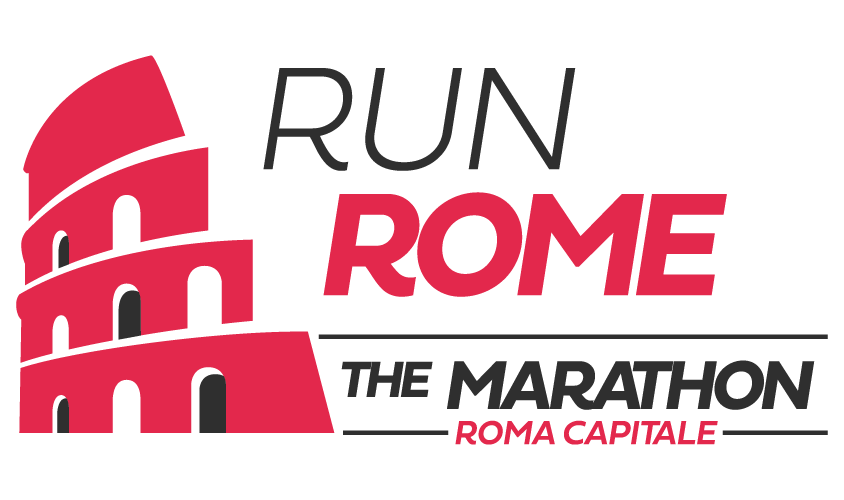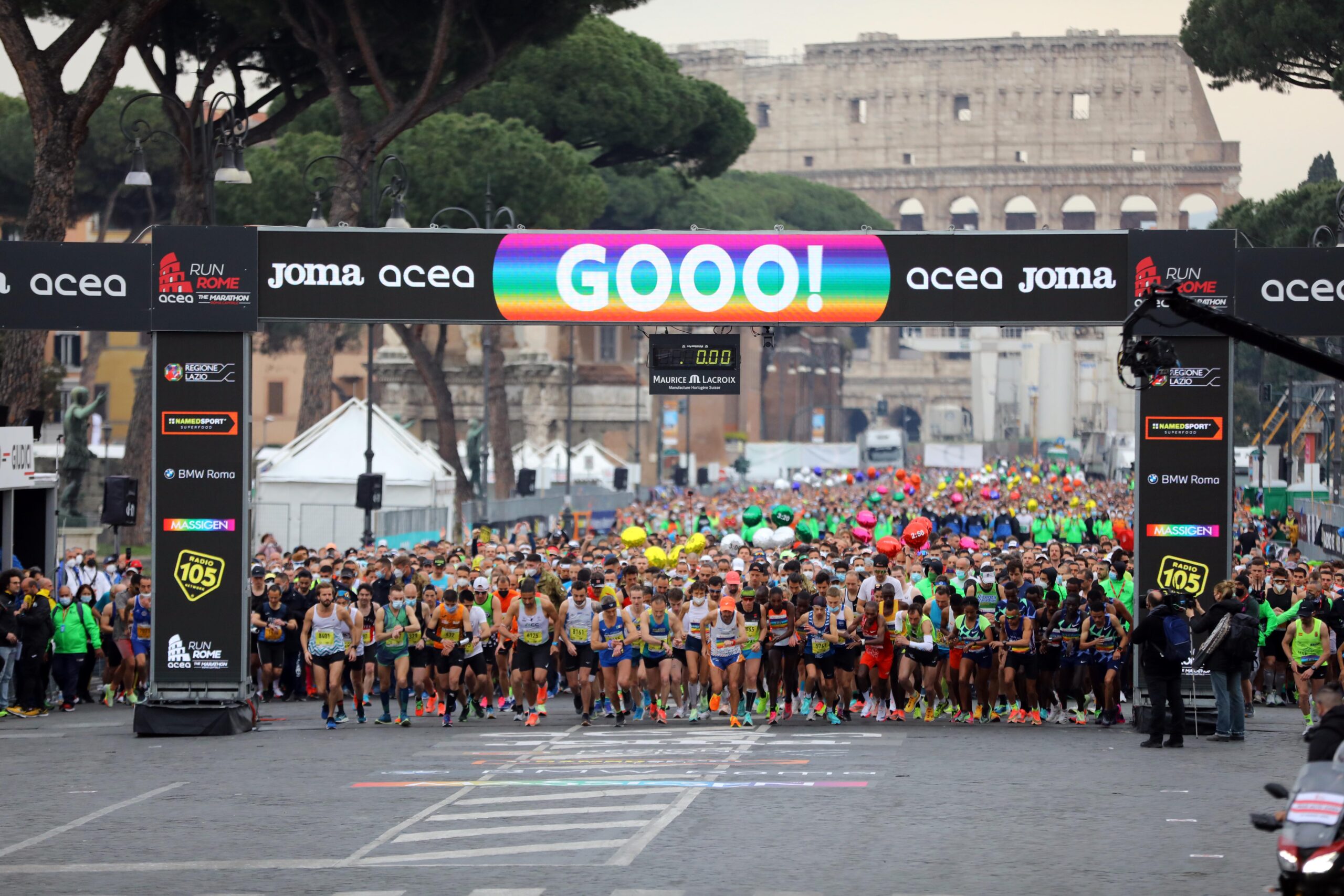Since 2021, Acea Run Rome The Marathon has implemented an important sustainable development policy for the largest sporting event in Italy, with the highest number of participants. Having already obtained the ISO 20121 certification, the objectives to be achieved are increasingly ambitious
In the last two editions, thanks to the contribution of Banco Alimentare Roma, 64 tons of materials were recovered, equal to the weight of more than 30 cars
ROME – Since its debut in 2021, one of the great challenges of the Acea Run Rome The Marathon has been to become a more sustainable marathon; not an easy aim to achieve for the sporting event in Italy with the highest number of participants, which expects about 30 thousand people to register, between the marathon, the Acea Run4Rome solidarity relay and the SN4IFUN Run stracittadina.
Several goals have already been achieved, others are even more ambitious and require longer timescales, but the challenge and the final goal are as significant as possible. Also for the next edition of 19 March 2023, the organisers of the event, Infront Italy, Corriere dello Sport – Stadium, Italy Marathon Club and Atielle, in collaboration with the Sustainability PartnerCircularity – a Benefit Corporation operating in the Circular Economy sector – are implementing several actions to reduce the environmental impact of the marathon.
“Sustainable management”, certified ISO 20121 – The Organisation has adopted a sustainable management system that has allowed it to obtain the ISO 20121 certification “sustainable event management“, issued by the Certification Body RINA. The starting point for defining the sustainable development policy of the event was to evaluate the economic, social and environmental impacts of the event. With clear and pragmatic objectives: at the economic level reducing, reusing and recycling to limit waste; in the social sector promoting and adopting ethical behaviours and monitoring their environmental impacts to reduce negative impacts and optimise positive ones.
The Organisation’s management, based on the indications of the international standard ISO 20121 has therefore defined a formal “Sustainable Development Policy” document, in accordance with the purpose of the Acea Run Rome the Marathon, shared with its stakeholders. In particular, the main stakeholders received a scoreboard of their respective goals and contributions, with reference to the sustainable development goals, in compliance with the indications of the 2030 Agenda drawn up by the United Nations: a system of guidelines to meet the requirements for the constant improvement of the Acea Run Rome the Marathon management system.
2021 AND 2022 RESULTS
Among the results is the reduction of food waste, more sustainable mobility, offsetting of CO2 emissions, better use of resources and waste.
Running is sustainable: it requires passion, tenacity and above all perseverance. Runners know that everything depends on the impact on the ground and that to go fast you have to take light steps. This is how Acea Run Rome The Marathon with its partners Circularity, zeroCO2, Banco Alimentare Roma, RINA and Plastic Free Odv Onlus, wants to be: light in impact, reaching the finish line quickly. In 2023, this is a goal that involves a reduced environmental impact especially in the reduction of food waste, sustainable mobility, offsetting emissions and better use of resources and waste.
In past editions, thanks to the active contribution of Associazione Banco Alimentare Roma ODV and the initiatives organised with Circularity and the sustainability partners, 40 tons of water, 16 tons of isotonic drinks, 170 kg of oranges, 950 kg of apples, 328 kg of food, 90 kg of bananas, 100 kg of snacks, 3,920 t-shirts, and 2,400 bags, giving a total of 64 tons, were recovered. This contribution also takes on a social value, since the network provides assistance to over 100,000 destitute people in the city of Rome and the Lazio Region.
Trees are considered the most effective and economical technology for greenhouse gas offsetting: Acea Run Rome the Marathon, in collaboration with zeroCO2 and thanks to the contribution of the members of the marathon has created, between 2022 and 2023, a forest of 6,000 trees in Guatemala that enable 3,870 tons of CO2 to be absorbed.
Particular attention has also been paid to the means of transport used during the race, for the mobility of athletes and their equipment: the existing fleet has been integrated such that it now consists of 60% hybrid or fully electric powered vehicles.
In the last two years, the Acea Run Rome The Marathon has also improved its degree of circularity, selecting and recovering waste for separate collection. The waste generated by the marathon amounted to 13,910 kg, including 1,670 kg of plastic and 1,740 kg of paper. The collection and selection activity enabled the start of recycling 54% of the plastic, equal to almost 902 kg, and 85% of paper, equal to 1,479 kg of recovered paper.
“The Organisation of the Rome Marathon has been very committed to making it one of the most sustainable sporting events in Italy, thanks to a strategy and a development plan that sees the organisers of the event, together with the stakeholders and partners involved, involved in the first place. The model of sustainability that the Rome Marathon is implementing can become a best practice to be replicated for major sporting and cultural events in Italy, such as football matches or concerts – comments Camilla Colucci, Founder and CEO of Circularity.
NEXT MILESTONES AND NEWS EDITION 2023
Circularity supports the Rome Marathon in its sustainability journey and is responsible for estimating and accounting for the event’s emissions to identify increasingly effective reduction and offsetting solutions. It also accompanies the marathon towards the goal of becoming “plastic free”, in addition to having contributed to an important new feature of this edition: thanks to the G-Tech partner, two eco-compactors will be installed that select plastic waste, reducing the volume positioned within the expo area of the event.
The Acea Run Rome The Marathon is committed in this year’s edition to plant another 3,000 trees (in addition to last year’s 3,000) in Guatemala, in the Pèten region, with the dual purpose of absorbing CO2 emissions and supporting the economy and the nutrition of local peasant families. All participants at the time of registration can contribute to the Acea Run Rome The Marathon forest with the purchase of one or more trees to combat CO2 emissions.
Circularity has also carried out training activities and workshops on the specific needs of the Organisation in order to integrate the principles of sustainability and circular economy within its organisational strategy. The SDGs (sustainable development goals) related to the ethical initiatives implemented have also been identified.
The ambitious goal of Acea Run Rome The Marathon for the coming years is the achievement of carbon neutrality. To respond effectively and concretely to the challenges to be faced for a more sustainable marathon, Circularity has in fact structured a long-term roadmap started in the 2021 edition, introducing a sustainability path aimed at estimating – with a view to transparency and continuous improvement – the carbon footprint of the most impactful activities of the event by activating ethical initiatives of sustainability and circular economy that allow the reduction of measured emissions.
On the marathon website (https://www.runromethemarathon.com/sostenibilita/#popmake-5963) the Sustainability Handbook is available for all supporters and participants, in addition to the event’s Sustainability Policy.
The turtle is the new mascot of Acea Run Rome The Marathon, in association with the WWF, and has been chosen as a symbol of and an expression of support for endangered species.
All advertising banners in TNT (non-woven fabric) placed on the roadblocks on the day of the race are made of recycled material, in support of increasing awareness of the issue of environmental protection also in the supply processes and, in general, in the entire organisation of the sporting event.
CIRCULARITY
Circularity is an innovative start-up with 100% Italian capital, 20% owned by Innovatec, a leading company in the clean tech sector listed on the Euronext Growth Milan market of Borsa Italiana (formerly AIM Italia). The startup, founded in June 2018, is led by Camilla Colucci, co-founder and CEO of the company.
Circularity is a benefit corporation, which is to say that it integrates in its corporate purpose, in addition to profit objectives, the aim of having a positive impact on society and the environment. The innovative start-up has developed the first and only industrial symbiosis platform for companies in Italy, which connects the actors of the production process, transformation and management of waste and materials, to start on paths of sustainability and circular economy. Circularity, thanks to its team of professionals experienced in sustainability and materials engineering issues and its qualified network of partners, also develops applications and manages targeted consulting projects to accompany companies in the process of integrating sustainability and circularity within their business model.
Website: www.circularity.com LinkedIn: https://www.linkedin.com/company/circularity-be-circular/

